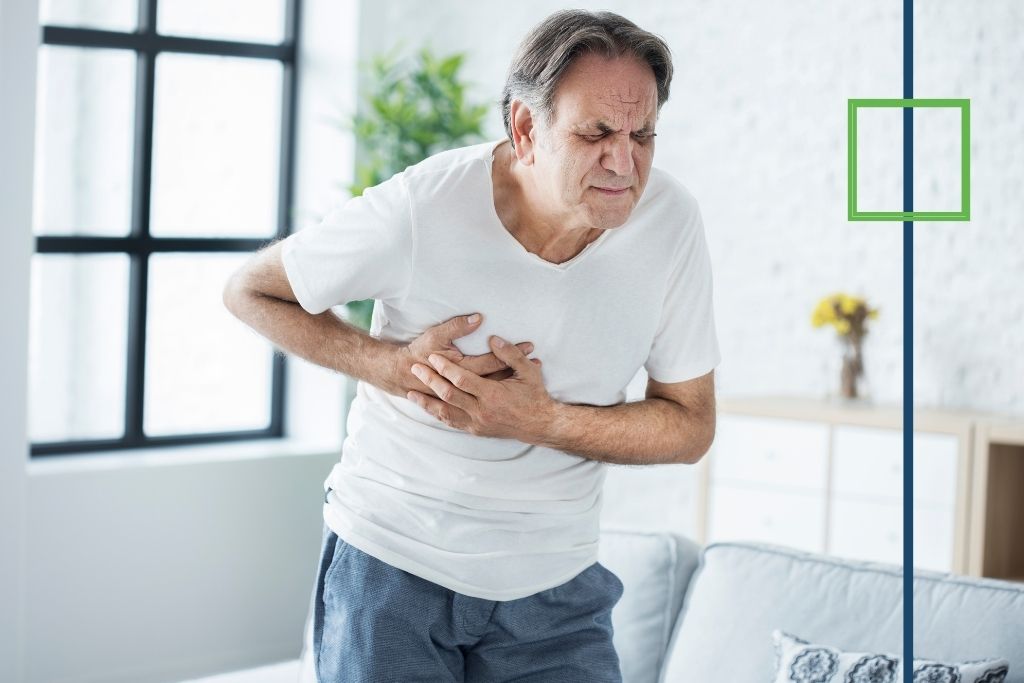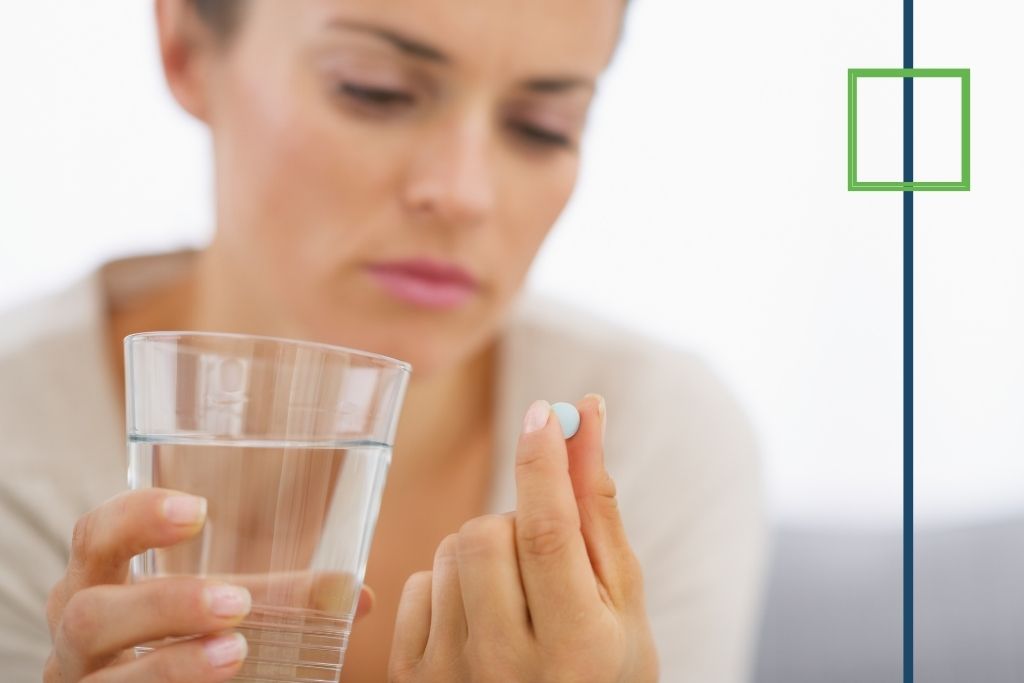What is Amphetamine?
Amphetamines, otherwise known as ‘speed’ on the streets, are psychoactive drugs that speed up the central nervous system (CNS). Its use increases certain types of brain activity, resulting in a feeling of higher energy, focus, and confidence. The drugs are sold under street names or drug slang names such as Bennies, Black Beauties, Crank, Ice, Speed, Uppers. Amphetamine’s effect is similar to cocaine, but the slower onset and longer duration. It was also used to treat two mental health conditions attention deficit hyperactivity disorder (ADHD) and narcolepsy, a condition in which people fall asleep suddenly. Occasionally, it is used in depression treatment. As time went by, amphetamine began to treat various conditions, from alcohol headaches and hangovers to weight loss[1].

Amphetamine effects of this drug include increased body temperature, blood pressure, pulse rates, insomnia, loss of appetite, physical exhaustion. Amphetamine addiction produces a psychosis that resembles schizophrenia: paranoia, hallucinations, violent and erratic behavior. Overdose can be fatal [2]. There is widespread use among younger generations who believe that these drugs are accessible and ‘safe’ compared to more potent drugs such as heroin. Despite this perceived positive image, the amphetamine effects, especially when misused, can be equally as devastating.
Much like the abuse of other illegal stimulant drugs such as MDMA (ecstasy), which is a derivative of amphetamines, people who take amphetamines intending to suppress appetite or feel less tired can become trapped in a cycle of repeated use that can lead to dependence and, ultimately, addiction.

Get Your Life Back
Find Hope & Recovery. Get Safe Comfortable Detox, Addiction Rehab & Mental Health Dual Diagnosis High-Quality Care at the We Level Up Treatment Centers Network.
Hotline (877) 378-4154Amphetamine Side Effects
If this drug is taken in pill form, the amphetamine effects usually begin to be felt after about 30 minutes. Snorting and injecting bypass the intended first step of gastrointestinal absorption and, when used in this manner, only require a couple of minutes for the effects to be felt [3].
An amphetamine high can last from about 4 to 8 hours. Depending on how much of the drug is taken, the amphetamine effects may persist for several days.
Short-Term Amphetamine Effects
- Increased energy
- Euphoria
- Enhanced confidence and well-being
- Improved focus, motivation and alertness
- Weight loss
Side Effects
Misuse of these drugs can cause harmful side effects such as:
- Sleep disturbances
- Restlessness
- Tinnitus (ringing in the ears)
- Dehydration
- Rapid decrease of salt in the blood, which can harm bodily functions
- Memory problems
- Confusions
- Depression
- Anxiety
- Irritability
- Aggression
- Hallucinations
- Paranoia
- Rambling speech
- Increase in body temperature or heart rate
- High blood pressure
- Psychotic episodes
- Palpitations and arrhythmias
- Chest pain
- Heart attack
- Stroke
- Seizures
- Sudden death
Long-Term Amphetamine Effects
Chronic abuse of these drugs is associated with a number of long-term amphetamine effects. Some of these may persist even after substance abuse treatment. They include:
- Impaired judgment
- Depression
- Social isolation
- Intractable insomnia
- Dystonias (involuntary muscle movement)
- Myalgias (muscle aches)
- Sinusitis
- Kidney damage or failure
- Hepatitis
- Weight problems (e.g., excessive weight loss)
- Work or school absenteeism
- Legal problems such as theft, prostitution and drug dealing
- Tolerance and withdrawal
- Fluctuations in body temperature
- Familial, marital, financial and personal relationship problems
- Aggressive behavior
- Sexual dysfunction.
- Vitamin deficiency
- Psychosis
- Loss of coordination and physical collapse
- Convulsions, coma and death
- Intranasal damage
- Nasal irritation
- Bleeding of nasal mucosa
- Perforated nasal septum
- Skin abscess or infection
- Tracks on forearms
- Vascular inflammation
- Septic endocarditis
- HIV
Get Help. Get Better. Get Your Life Back.
Searching for Accredited Drug & Alcohol Rehab Centers Near You? Or Mental Health Support?
Even if you have failed previously, relapsed, or are in a difficult crisis, we stand ready to support you. Our trusted behavioral health specialists will not give up on you. Call us when you feel ready or want someone to speak to about therapy alternatives to change your life. Even if we cannot assist you, we will lead you wherever you can get support. There is no obligation. Call our hotline today.
FREE Addiction Hotline – Call 24/7Amphetamine Side Effects Long Term Use
Further, individuals who abuse amphetamines may have so much energy that they may not notice when they are becoming hungry or thirsty. This can result in dramatic weight loss. However, an increase in body temperature, which is one of the side effects of amphetamine use, in combination with dehydration, can have deadly consequences.
Amphetamine Effects on Nervous System
Amphetamines are stimulants of the central nervous system and sympathetic division of the peripheral nervous system. It appears that the main action of amphetamines is to increase the synaptic activity of the dopamine and norepinephrine neurotransmitter systems. Amphetamines can:
- Cause the release of dopamine from axon terminals
- Block dopamine reuptake
- Inhibit the storage of dopamine in vesicles
- Inhibit the destruction of dopamine by enzymes
All of these actions result in more dopamine in the synaptic cleft where it can act on receptors. The doses of amphetamines that clinicians typically prescribe cause a slow and gradual increase of dopamine that mimics the way this neurotransmitter is normally activated in the brain.
However, when amphetamines are taken in excess of prescribed doses or are snorted or injected, dopamine levels increase sharply. As a result, the abuser may experience a disruption of normal brain activity.
Addiction to and withdrawal from amphetamines are both possible. Amphetamine use also causes tolerance to its effects. This means that more and more amphetamine must be used to get “high.” Amphetamine withdrawal is characterized by severe depression and fatigue. Users will go to extreme measures to avoid the “downer” that comes when the effect of amphetamines wears off.
Amphetamines Effects on Weight Control
Amphetamine diet pills are a supplement that is commonly used to help lose weight by reducing the levels of hunger throughout the day. These types of pills also give the user high amounts of energy, which also aids in the weight loss process because of the increase in activity levels. Unlike some pills available on the market throughout the world, amphetamines do not work directly on the fat within the body. Rather, they work with the brain’s specific parts that control the natural hunger response. These chemicals in the brain are eliminated by the amphetamine diet pills, making it possible to go an entire day, or even several days, without feeling any hunger pains.
These pills have been banned in many areas because many people abuse these products due to the side effects. However, on many street corners, these pills are bought and sold because they drastically increase the energy levels. The United States has even gone so far as to ban these diet pills for medical purposes.
Amphetamine diet pills can be extremely dangerous to the user because of various medical conditions resulting from taking them. For example, people with high blood pressure and heart problems need to avoid them because they cause serious complications. It can also cause various levels of insomnia, confusion, heart palpitations. Loss of concentration can also occur. Amphetamine diet pills are very effective.
First-class Facilities & Amenities
World-class High-Quality Addiction & Mental Health Rehabilitation Treatment
Rehab Centers TourRenowned Addiction Centers. Serene Private Facilities. Inpatient rehab programs vary.
Addiction Helpline (877) 378-4154Proven recovery success experience, backed by a Team w/ History of:
15+
Years of Unified Experience
100s
5-Star Reviews Across Our Centers
10K
Recovery Success Stories Across Our Network
- Low Patient to Therapist Ratio
- Onsite Medical Detox Center
- Comprehensive Dual-Diagnosis Treatment
- Complimentary Family & Alumni Programs
- Coaching, Recovery & Personal Development Events

Amphetamine Effect on the Heart
Researchers warn that using illegal amphetamine drugs such as “speed” and “ice” may lead to premature aging of the arteries and the heart. The link between illegal amphetamine use and greater aging of the arteries was seen in men and women. It was also independent of other risk factors for heart disease and stroke. It’s not clear if this damage is reversible. Amphetamines are stimulants that can cause heart effects such as elevated heart rate and blood pressure and increased risk of heart attack, stroke, and aneurysm rupture. Recurrent habitual amphetamine abuse ages the cardio vasculature, and generally the whole organism.
Amphetamine Effects on the Brain
Amphetamine is a stimulant drug that causes intense effects on the brain. Sometimes, these amphetamine effects are beneficial, and the drug is able to combat the symptoms of ADHD by “decreasing restlessness” and increasing concentration. In other instances, amphetamine can cause adverse effects, especially when it is taken in extremely high doses [4]. These amphetamine effects are often caused by how the drug works on the brain.
Unfortunately, the longer someone uses amphetamine, the more chances it will cause to the brain and the way it works. Amphetamine abusers experience many side effects, including tolerance and dependence. When someone abuses amphetamine for a long time, the brain eventually adapts to the intense euphoria caused by the drug. The individual will need to take higher doses to experience that same effect each time. Eventually, the individual will become dependent on the drug, as the brain will not be able to function correctly without it. This, in turn, leads to amphetamine addiction.
Amphetamine Effects on Mental Health
Mental illnesses also occur in those who abuse amphetamine. Amphetamine psychosis, which includes hallucinations, paranoia, and other symptoms similar to schizophrenia” can occur. These symptoms may take a long time to disappear, even after the individual has stopped abusing the drug. Brain damage can also occur, and though it can often be resolved after a year or so, some issues may be permanent [5].
Amphetamine causes a wide variety of effects on the brain, especially when it is taken in high doses. The drug causes users to feel alert and excited, and, over time, these results change the way the brain works. Someone who has experienced intense psychological effects from using or abusing this drug should seek treatment, as it may be the only way to reverse them.
Amphetamine Overdose
It’s possible to overdose on amphetamines by taking too much or combining different types of stimulant drugs.
You can also overdose by mixing amphetamines with different types of drugs, like alcohol or opioids. It’s hard to tell how much you can handle when you’re combining substances.
An amphetamine overdose may be indicated by dangerously high body temperature. Overdose symptoms could be hallucinations, convulsions, or a heart attack, which may be fatal.
World-class, Accredited, 5-Star Reviewed, Effective Addiction & Mental Health Programs. Complete Behavioral Health Inpatient Rehab, Detox plus Co-occuring Disorders Therapy.
CALL (877) 378-4154End the Addiction Pain. End the Emotional Rollercoaster. Get Your Life Back. Start Drug, Alcohol & Dual Diagnosis Mental Health Treatment Now. Get Free No-obligation Guidance by Substance Abuse Specialists Who Understand Addiction & Mental Health Recovery & Know How to Help.
Amphetamine May Interact with Other Medications
The effects of taking amphetamines with other drugs − including over-the-counter or prescribed medications − can be unpredictable and dangerous, and could cause:
- Amphetamines + some antidepressants: increases the risk of irregular heartbeat and seizures.
- Amphetamines + alcohol: increased heart rate and blood pressure.
- Ampetamines + opioids: increases the risk of irregular heartbeat and seizures.
The use of more than one drug or type of drug consumed at the same time is called polydrug use.
Amphetamine Addiction Treatment
Amphetamine addiction treatment begins with recognizing there is a problem. Once you decide you want to do something about your drug use, the next step is to get help and support.
Amphetamine addiction treatment programs use behavior change techniques through counseling or talk therapy. The goal is to help you understand your behaviors and why you use amphetamines. Involving family and friends during counseling can help support you and keep you from going back to using (relapsing).
If you have severe withdrawal symptoms, you may need to stay at a live-in treatment program. There, your health and safety can be monitored as you recover.
Gaining lasting recovery after amphetamine addiction proves difficult and has a long road to wellness. You can achieve this wellness with the right help. You need an array of therapies, programs, and services, such as:
- Medically assisted detox
- Inpatient addiction rehab
- Behavioral therapies, including cognitive behavioral therapy (CBT), and holistic treatment program
- Individual, family, and group counseling as help for family members of drug addicts
- Coping skills and life skills to prevent relapse
- Quality nutrition and medical care
Inpatient drug rehab provides a drug-free place away from obstacles that could trigger your cravings. You typically stay in a treatment center for several weeks and participate in individual and group therapies. If you or a loved one is struggling with amphetamine effects and addiction. We Level Up NJ addiction specialists are standing by to help.

Experience Transformative Recovery at the We Level Up Treatment Center.
See our authentic success stories. Get inspired. Get the help you deserve.



Start a New Life
Begin with a free call to an addiction & behavioral health treatment advisor. Learn more about our dual-diagnosis programs. The We Level Up treatment center network delivers various recovery programs at each treatment facility. Call to learn more.
- Personalized Care
- Caring Accountable Staff
- World-class Amenities
- Licensed & Accredited
- Renowned w/ 5-Star Reviews
We’ll Call You
Sources:
[1] NIH – https://medlineplus.gov/druginfo/meds/a616004.html
[2] NCBI – https://pubmed.ncbi.nlm.nih.gov/17443208/
[3] NIH – https://medlineplus.gov/ency/patientinstructions/000792.htm
[4] DEA – https://www.dea.gov/sites/default/files/2020-06/Amphetamines-2020_0.pdf
[5] NCBI – https://pubmed.ncbi.nlm.nih.gov/1523237/#:~:text=Although%20there%20is%20evidence%20suggesting%20that%2C%20in%20addition,consistency%20among%20the%20few%20studies%20examining%20that%20factor.